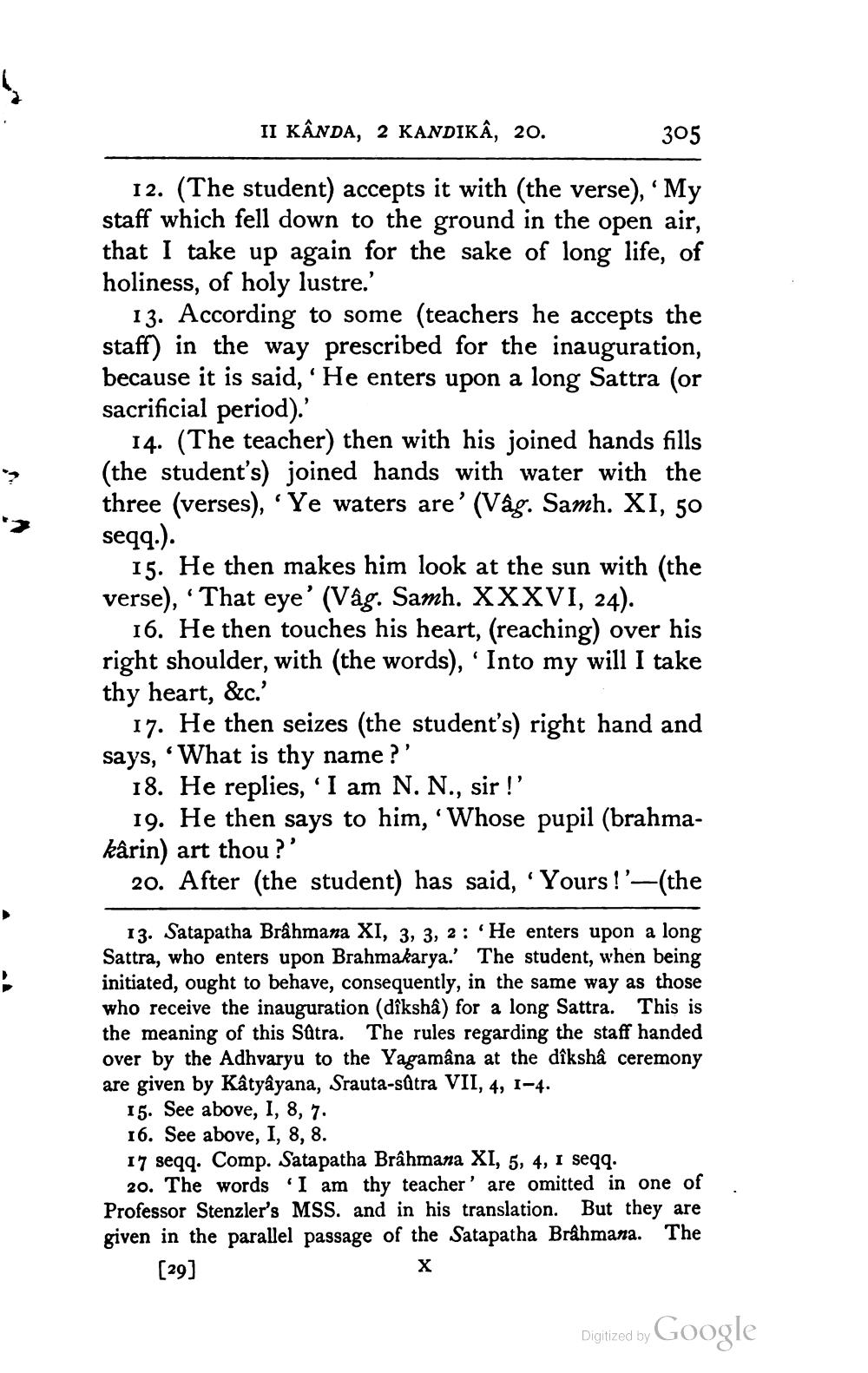________________
"2
>
II KANDA, 2 KANDIKA, 20.
305
12. (The student) accepts it with (the verse), 'My staff which fell down to the ground in the open air, that I take up again for the sake of long life, of holiness, of holy lustre.'
13. According to some (teachers he accepts the staff) in the way prescribed for the inauguration, because it is said, 'He enters upon a long Sattra (or sacrificial period).'
14. (The teacher) then with his joined hands fills (the student's) joined hands with water with the three (verses), 'Ye waters are' (Vâg. Samh. XI, 50 seqq.).
15. He then makes him look at the sun with (the verse), 'That eye' (Vâg. Samh. XXXVI, 24).
16. He then touches his heart, (reaching) over his right shoulder, with (the words), ' Into my will I take thy heart, &c.'
17. He then seizes (the student's) right hand and says, 'What is thy name?'
18. He replies, 'I am N. N., sir!'
19. He then says to him, 'Whose pupil (brahmakârin) art thou?'
20. After (the student) has said, 'Yours!'-(the
13. Satapatha Brâhmana XI, 3, 3, 2: 'He enters upon a long Sattra, who enters upon Brahmakarya.' The student, when being initiated, ought to behave, consequently, in the same way as those who receive the inauguration (dîkshâ) for a long Sattra. This is the meaning of this Sûtra. The rules regarding the staff handed over by the Adhvaryu to the Yagamâna at the dîkshâ ceremony are given by Kâtyâyana, Srauta-sutra VII, 4, 1-4.
15. See above, I, 8, 7.
16. See above, I, 8, 8.
17 seqq. Comp. Satapatha Brâhmana XI, 5, 4, I seqq.
20. The words 'I am thy teacher' are omitted in one of Professor Stenzler's MSS. and in his translation. But they are given in the parallel passage of the Satapatha Brahmana. The
[29]
X
Digitized by Google




